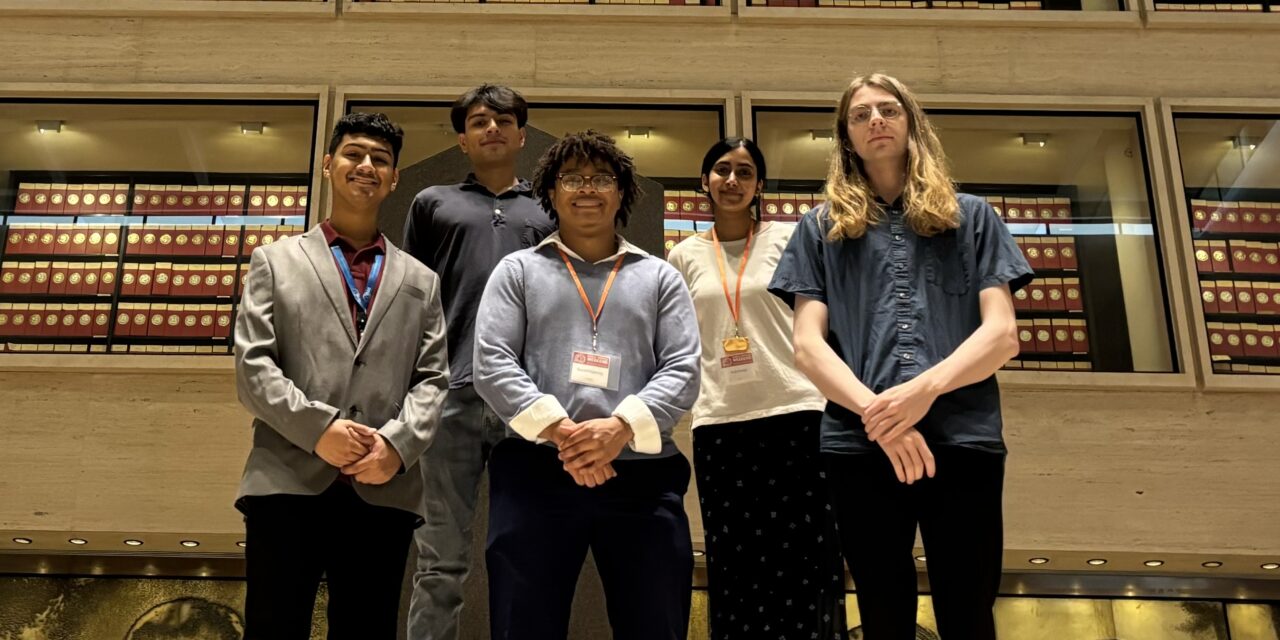For the first time, five Austin Community College District (ACC) students joined the prestigious 2024 Public Policy and International Affairs Program (PPIA) Public Service Weekend. This year’s conference theme was “Emerging Public Policy Issues in Texas & the American South.”
The students attended the three-day conference from Thursday, July 18, through Sunday, July 21, at the LBJ School of Public Affairs at the University of Texas at Austin. The conference aims to empower students from historically underrepresented backgrounds to consider graduate degrees and careers in public service.
One of those students was Ryan C. The 23-year-old philosophy student began his ACC journey in 2023 and plans to transfer to earn his bachelor’s degree next year.
Learn more about his experience and journey at ACC below.
I heard about the UT LBJ school’s Public Service Weekend from a professor who has been a great influence and has pointed me toward opportunities. I had participated more actively in politics several years ago, but I wasn’t sure if the program would be right for my path forward. However, I decided to apply and was accepted.
I was surprised but also excited. With the political climate of the U.S. and Texas being so charged, I sometimes felt I was trying to ignore the legislative process and focus on more abstract things. This allowed me to observe more of that process and the mindset of the policymakers behind it.
For the program, we were sorted into teams. We had to get to know and work with some of our student colleagues, and we were given policy subjects—many of them especially tough—on which to write and present a policy proposal, which would be graded by a panel. Throughout the day we were lectured by various experts in their fields.
One of many highlights for me included an education subject panel with teachers, ISD board members, and education policy advocates. Here, I connected some of the ongoing policy struggles that stripped public schools of more and more resources—and left many children behind or with growing gaps in their education—with some of my experiences in the public system as a child. Areas of policy like this factor into every aspect of our lives. Some of these long-running policy debates had shaped me as a person when I was not even privy to them—getting an insider look, then, is a little like learning more about the conditions that shaped me and my peers … and how educators are fighting for better conditions for the future against the political trends around us.
Throughout the weekend, my team and I researched and debated implementing our policy subject at a federal level. Ours was known for gridlock, so we looked for bipartisan action. We cooperated with other teams and got to hear about their processes. When judged, our feedback was real, applicable, and experienced. None of us expected to become experts on our issue overnight, but the presentations I watched my peers give felt like legitimate, applicable proposals — like we were finding a way through today’s political climate to come up with real solutions.
I expected to feel out of place. But watching my ACC peers—who took on leadership roles, led projects, and asked great questions every lecture—I gradually began to see some of the characteristics of us ACC students at play.
I got to know some very inspiring people who I’m confident are headed to great places. For that reason I want to especially thank Samy Ráez for helping make this opportunity a reality, Dr. Anne-Marie Thomas, and all leadership of the Honors program. For my ACC peers—I’m glad I had this opportunity. By the end of it, you’ve been able to work with some extremely bright people, learn from insiders about the sometimes esoteric political process, and be shown your value and input directly at all stages of our politics.
As a community college student, I can be my worst enemy: the LBJ PPIA opportunity showed me how to get out of my way. I encourage any of my friends at ACC to apply.

